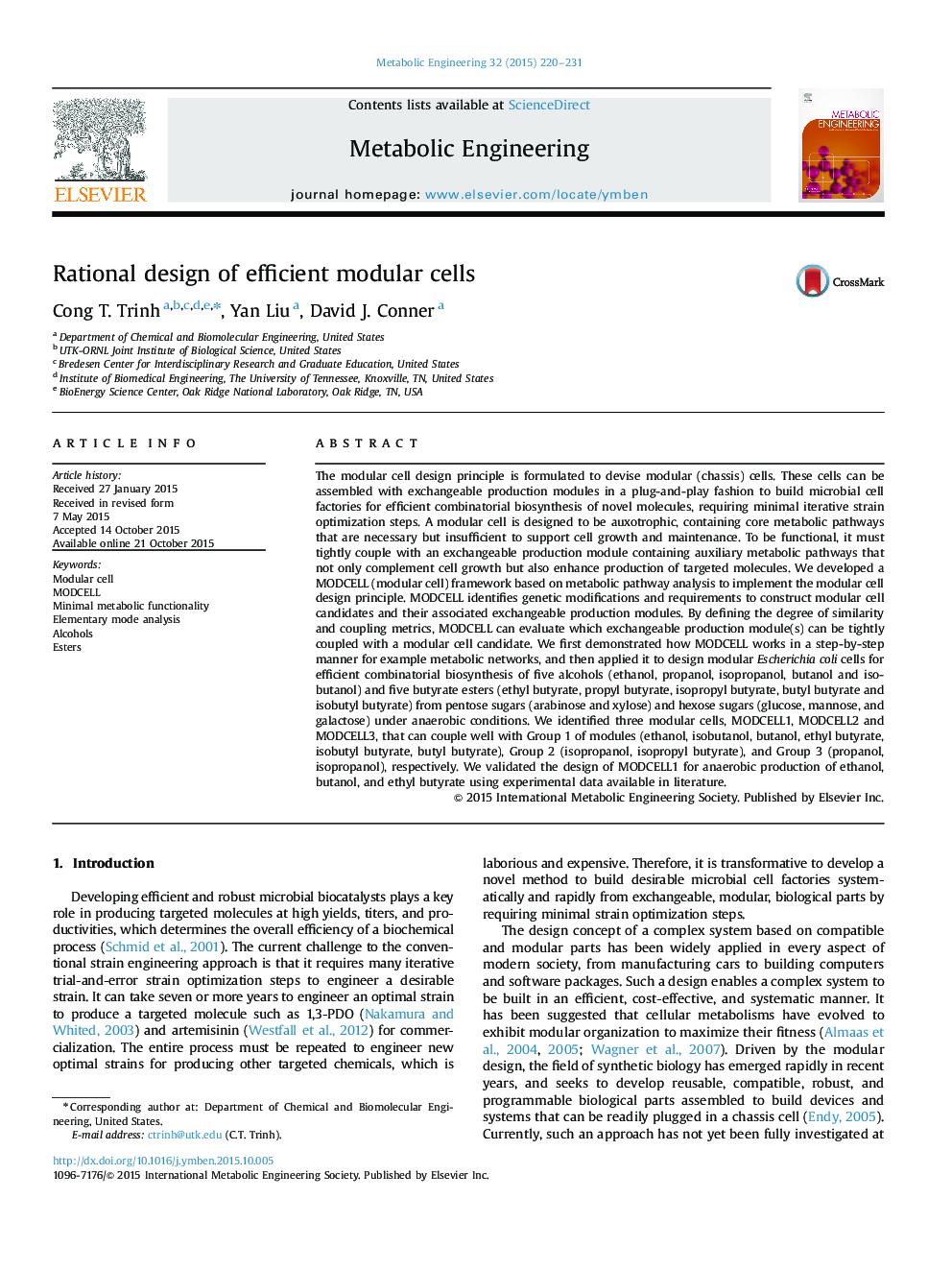| Article ID | Journal | Published Year | Pages | File Type |
|---|---|---|---|---|
| 6494323 | Metabolic Engineering | 2015 | 12 Pages |
Abstract
The modular cell design principle is formulated to devise modular (chassis) cells. These cells can be assembled with exchangeable production modules in a plug-and-play fashion to build microbial cell factories for efficient combinatorial biosynthesis of novel molecules, requiring minimal iterative strain optimization steps. A modular cell is designed to be auxotrophic, containing core metabolic pathways that are necessary but insufficient to support cell growth and maintenance. To be functional, it must tightly couple with an exchangeable production module containing auxiliary metabolic pathways that not only complement cell growth but also enhance production of targeted molecules. We developed a MODCELL (modular cell) framework based on metabolic pathway analysis to implement the modular cell design principle. MODCELL identifies genetic modifications and requirements to construct modular cell candidates and their associated exchangeable production modules. By defining the degree of similarity and coupling metrics, MODCELL can evaluate which exchangeable production module(s) can be tightly coupled with a modular cell candidate. We first demonstrated how MODCELL works in a step-by-step manner for example metabolic networks, and then applied it to design modular Escherichia coli cells for efficient combinatorial biosynthesis of five alcohols (ethanol, propanol, isopropanol, butanol and isobutanol) and five butyrate esters (ethyl butyrate, propyl butyrate, isopropyl butyrate, butyl butyrate and isobutyl butyrate) from pentose sugars (arabinose and xylose) and hexose sugars (glucose, mannose, and galactose) under anaerobic conditions. We identified three modular cells, MODCELL1, MODCELL2 and MODCELL3, that can couple well with Group 1 of modules (ethanol, isobutanol, butanol, ethyl butyrate, isobutyl butyrate, butyl butyrate), Group 2 (isopropanol, isopropyl butyrate), and Group 3 (propanol, isopropanol), respectively. We validated the design of MODCELL1 for anaerobic production of ethanol, butanol, and ethyl butyrate using experimental data available in literature.
Related Topics
Physical Sciences and Engineering
Chemical Engineering
Bioengineering
Authors
Cong T. Trinh, Yan Liu, David J. Conner,
